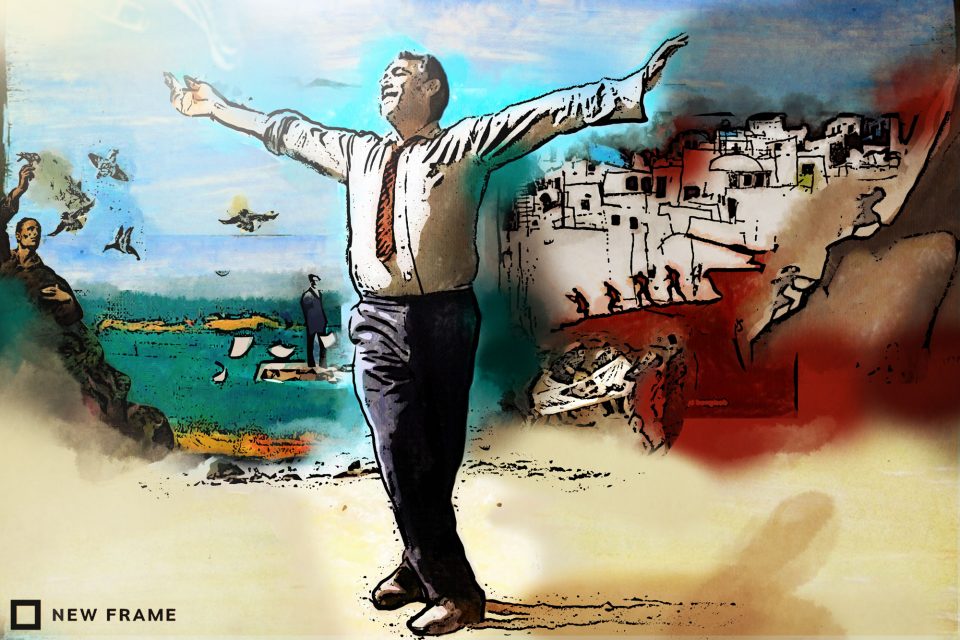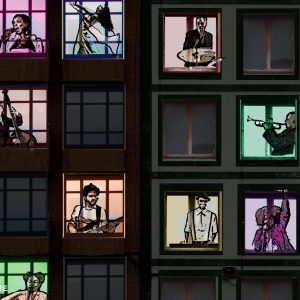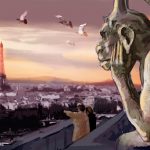Text Messages | Finding the faith
Nikos Kazantzakis is known for Zorba the Greek, but it is his novel The Fratricides that best speaks to our present condition as the coronavirus wrenches from us life as we know it.
Author:
9 April 2020

Rarely has a single film seemed to be a guide for so many to so much about a culture. Zorba the Greek, based on the novel by Nikos Kazantzakis, has come to epitomise for many non-Greeks all that is most essential and vibrant and fatalistic about Greek culture. For Greeks, the situation is not quite so. Whereas the novel is widely well regarded, the film is less so, in the main because it has been responsible for peddling exaggerated archetypes of the Greek character.
Such film shorthand is inevitable. Few authors are really happy with adaptations of their work for the screen, even though they accept the vast differences between the moving image and the printed word. Still, the film of Zorba has been responsible for countless line dances in Greek restaurants and other “appropriations” of the culture. This despite the film being created by Greek artists: produced, directed, written and edited by Michael Cacoyannis, music by Mikis Theodorakis, art direction by Vassele Fotopoulos and costumes by Anna Stavropoulou.
In its outward essentials of look and sound, the film is intensely, broodingly Greek. But looming above all that is the monumentally imposing figure of Anthony Quinn, who plays Alexis Zorba. A performance much loved by audiences and critics – and extremely lovable indeed – it nonetheless derails the film at times and diverts attention from the book’s profound existential questions. Nonetheless, much still remains of Kazantzakis’ contrasting the life of the mind with the life of action, the contemplative with the active.
Related article:
That aspect is captured in a number of the film’s perfectly judged scenes. Basil, the repressed young English writer who has come to Crete in search of himself and his writer’s voice, says to Zorba that he writes about men who, unlike Zorba, don’t have the answers to everything. In other moments, Zorba reveals his philosophy of living. Once he says that “life is to unbuckle yourself and look for trouble”; another time he muses that “clever people and grocers, they weigh everything”.
Despite the harm that the film has done to the popular idea of what it is or is not to be Greek, it is a memorable achievement, daring in its time, 1964, for its unflinching language and subversive humour. And the performances are unforgettable: Irene Papas as the widow, Lila Kedrova as the faded good-time girl Madame Hortense, Alan Bates as Basil.
A meeting of founders
Kazantzakis wrote much else, though his other works are not known as they should be. God’s Pauper, a novelistic biography of St Francis of Assisi, is remarkable for its evocation of an elevated spirituality and a communing with a higher force, intangible but somehow realised for the reader by the spare prose that marks Kazantzakis at his best.
Among its unforgettable passages is an imagined meeting in Rome between Francis and Dominic, both later to be made saints by the Roman Catholic Church. The founder of the Franciscans encounters the founder of the Dominicans on the street. An Italian who serves the poor and is at odds with some of the church’s doctrine falls into conversation with a Spanish intellectual who developed more of that doctrine and whose order was later to lead the Spanish Inquisition, a church process to hunt down so-called heretics. The talk turns, unavoidably, to “heretics”. Dominic is steely and determined about how they should be dealt with: “Burn them!” he says to Francis. “No, brother. Love them,” says Francis.
Related article:
But it is The Fratricides that speaks most to our present condition. As can be gleaned from its title, it is about internecine and inter-community conflict. Its characters are displaced from their homes, forced to flee with what few possessions they can carry or transport by primitive means. As the bedraggled and dispirited villagers journey, they are drawn along and held together by the life force of one man, Father Yánaros.
Later in the novel, we follow the existential thoughts of one of the marchers.
“April 3: … It was apparent that a simple end to our misery could have made us human beings again, but that end never came, and once more we became beasts. Some invisible power, which I cannot name, plays on us, holding us in its fingers, and I still don’t know whether that force is blind and senseless or full of vision and wisdom.”
And, later:
“April 7: … Sleeplessness, hunger, war! The poor tortured body, how long can it endure? It’s not a dry branch or a stone; it’s flesh, and if we only had faith, one thing to believe in, we would endure.”


